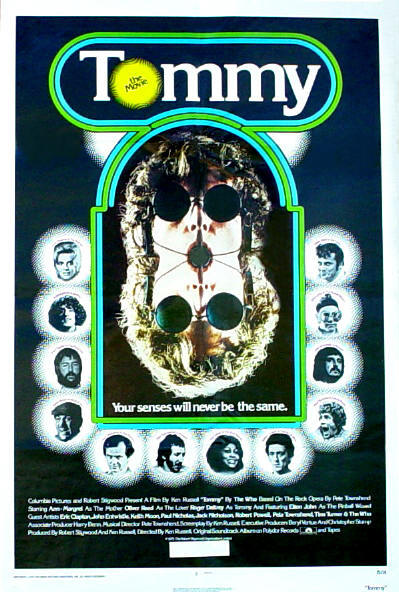Revisit: Tommy

A Columbia Pictures release 1975
Written & Directed by Ken Russell
Based on the album by The Who
A deaf, dumb and blind boy becomes a master pinball player and the object of a religious cult.
Ken Russell's 1975 adaptation of the classic Who concept album is a psychedelic kaleidoscope, a smattering of elaborate set-pieces, insane costumes and cartoon colors set the tune of Pete Townsend's windmill licks. It's a lot of fun in that tripped out, self-important yet actually silly & superfluous 70's way. It features the band along with several name actors -- Oliver Reed, Ann-Margaret (in an Oscar nominated turn), Jack Nicholson -- as well as other musicians -- Eric Clapton, Elton John, Tina Turner -- as they tell the story of Tommy, the famed deaf/dumb/blind pinball wizard.
What strikes me most about this film is how it jumbles the story and song out of sequence from the album to bring its vision to life. They make a lot of changes to the source material and take the story down a path I had never truly envisioned in my own head. Tommy was my favorite album growing up -- I used to listen to it every night as I went to bed -- so you could say I have some personal attachment to it. Little details, like the fact that the song "1921" was changed to "1951" so the setting would make sense, seem like strange and unnecessary compromises, while other songs, like "Cousin Kevin", are put to image perfectly. Overall it's a fun film and certainly engaging visually (as Ken Russell films usually are), so it's worth a watch if you're a fan of The Who.

